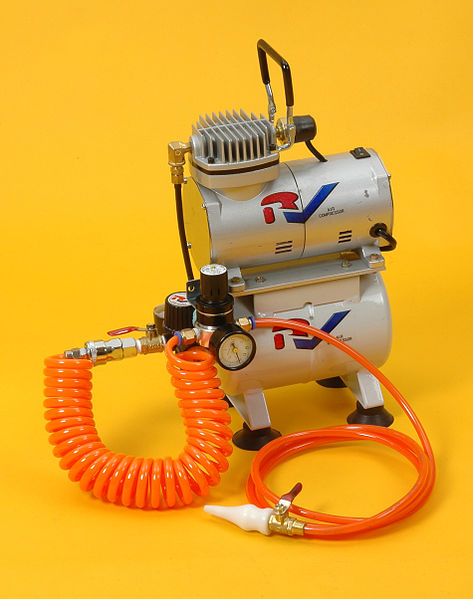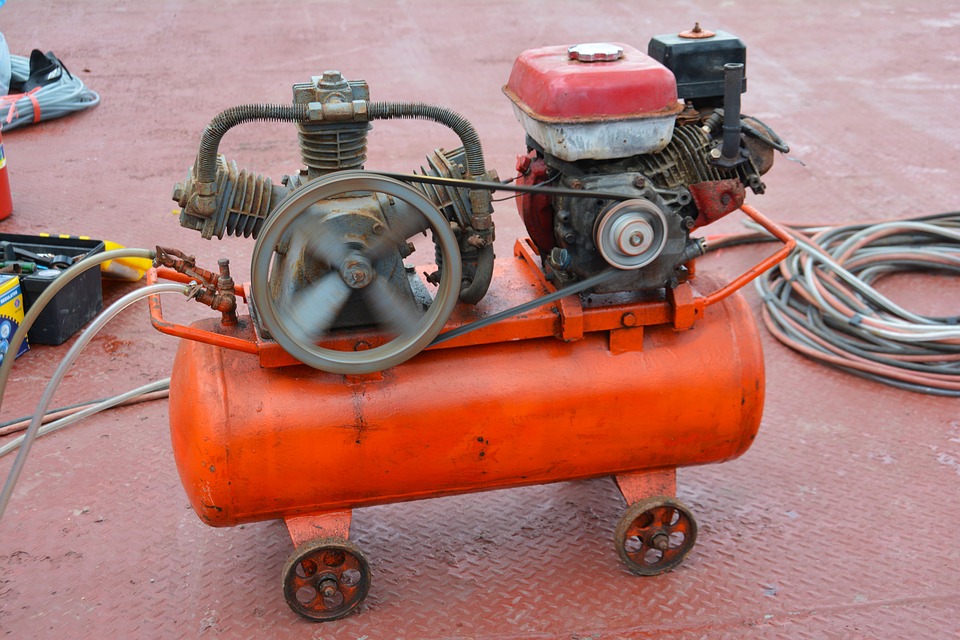Compressed air is an integral part of many manufacturing operations. It’s too easy to neglect these systems until they leak too much or lose compression. These incidents will stop production or severely slow it. Instead of losing production efficiency, keep a predictive maintenance schedule for your compressed air systems to keep your operation going and avoid unexpected work stoppages.
Most standard maintenance procedures are preventative. While these steps are great for delaying breakdowns, they can take excessive amounts of time. To make the most of your employees’ time, integrate predictive maintenance. Equipping air compressors with sensors to collect data about use and wear can inform your service personnel when predictive maintenance is needed.
If you can afford the sensors and other equipment required for predictive maintenance, you’ll see a dramatic return on your investment. Air compressors with sensors on the exhaust and oil can lower the mean time to repair by 15 percent since operators know exactly where the problem occurs. The time until the first repairs are needed increases by up to 20 percent, reducing downtime and maintenance efforts.
Even if you have sensors to conduct predictive maintenance, preventative tasks are still important. Follow the manufacturer’s suggestions for maintenance and cleaning of the air compressor. It’s critical to refer to the manufacturer’s recommendations for compressed air systems since different models may require various times for care tasks. Regular maintenance could help you avoid leaks and other breakdowns of the equipment.
If you don’t have the original manufacturer’s instructions, follow regular preventative maintenance. Daily, weekly and monthly chores help keep your air compressors running at their peak, regardless of brand or how much they’re used. Train your employees in these tasks to properly maintain the air compressors they use.

Just like a car, air compressors operate best with the right amount of clean oil. Check the oil level daily before use. If you notice changes, examine the air compressor for leaks. Leaking oil could compromise the efficiency of the air compressor. It also may shorten the compressor’s life. Repair any oil leaks immediately before operating the machine again.
Every day, drain condensation after use, especially if you work in a humid environment. Slowly bleed air off the tank until the pressure reaches 10 psi. Then, completely open the valves to fully drain the tank of condensation. To reduce condensation in the tank and its mechanisms, store and use it in consistent temperatures. Climate swings increase moisture in the operating parts, which shortens lifespan.

Pressure Equipment Compressor Generator Machine
At least once a week, check the air compressor for signs of air leaks or belt wear. Also remove and clean the air filter and examine it for leaks. Taking these steps regularly will increase the efficiency of the air compressor.
Monthly maintenance tasks require checking for air leaks and tightening bolts as needed. Check the belts and safety relief valve for problems. Use soapy water to check the connections for air leaks. After coating the connection in the soapy water, turn on the compressor. If you see bubbles, the connector leaks and needs repair. Once a year, you’ll also need to service the engine as recommended by the manufacturer.
Air leaks can rob your air compressor of efficiency and you of productivity. Air compressors require a significant amount of energy to operate, and a leak could waste up to 30 percent in energy costs. Recognizing and addressing air leaks quickly reduces the amount of energy and money wasted.
Air leaks may require ultrasonic leak detectors to spot since some are not audible to human ears. These detectors are especially useful for finding tiny leaks on large air compressors. The larger the leak, the more money it will waste over time, so prioritize fixing those first. To prevent leaks, always use sealant instead of Teflon tape. According to application engineer Tom Buckley, Teflon tape does not fill voids in the threads. A sealant gets into all the spaces, providing a better seal.
Don’t let misuse of your air compressors cost you money. Air compressors used incorrectly are more prone to breakdowns. For instance, some may use air compressors as coolers, but doing so is not the most efficient use of the equipment, and it can reduce the compressors’ lives. Compressed air should not be used to clean areas or equipment either. Maximize the efficiency and longevity of your air compressors by using them only as intended.
Through regular maintenance of your air compressors, you’ll reduce downtime at your facility, which will increase your efficiency and profits. Whether you choose to invest in sensors for predictive maintenance or want to go old-school with preventative maintenance, keeping your air compressors in working order is vital. Don’t neglect these critical components of your facility by putting off maintenance chores. Prioritize the maintenance of your air compressors.
 Megan Ray Nichols
Megan Ray Nichols
Freelance Science Writer
Megan Ray Nichols is a STEM writer and the editor of Schooled By Science. She regularly writes for IMPO Magazine and American Machinist. For more from Megan, follow her on Twitter, @nicholsrmegan, or subscribe to her blog.
Scott Ellyson, CEO of East West Manufacturing, brings decades of global manufacturing and supply chain leadership to the conversation. In this episode, he shares practical insights on scaling operations, navigating complexity, and building resilient manufacturing networks in an increasingly connected world.